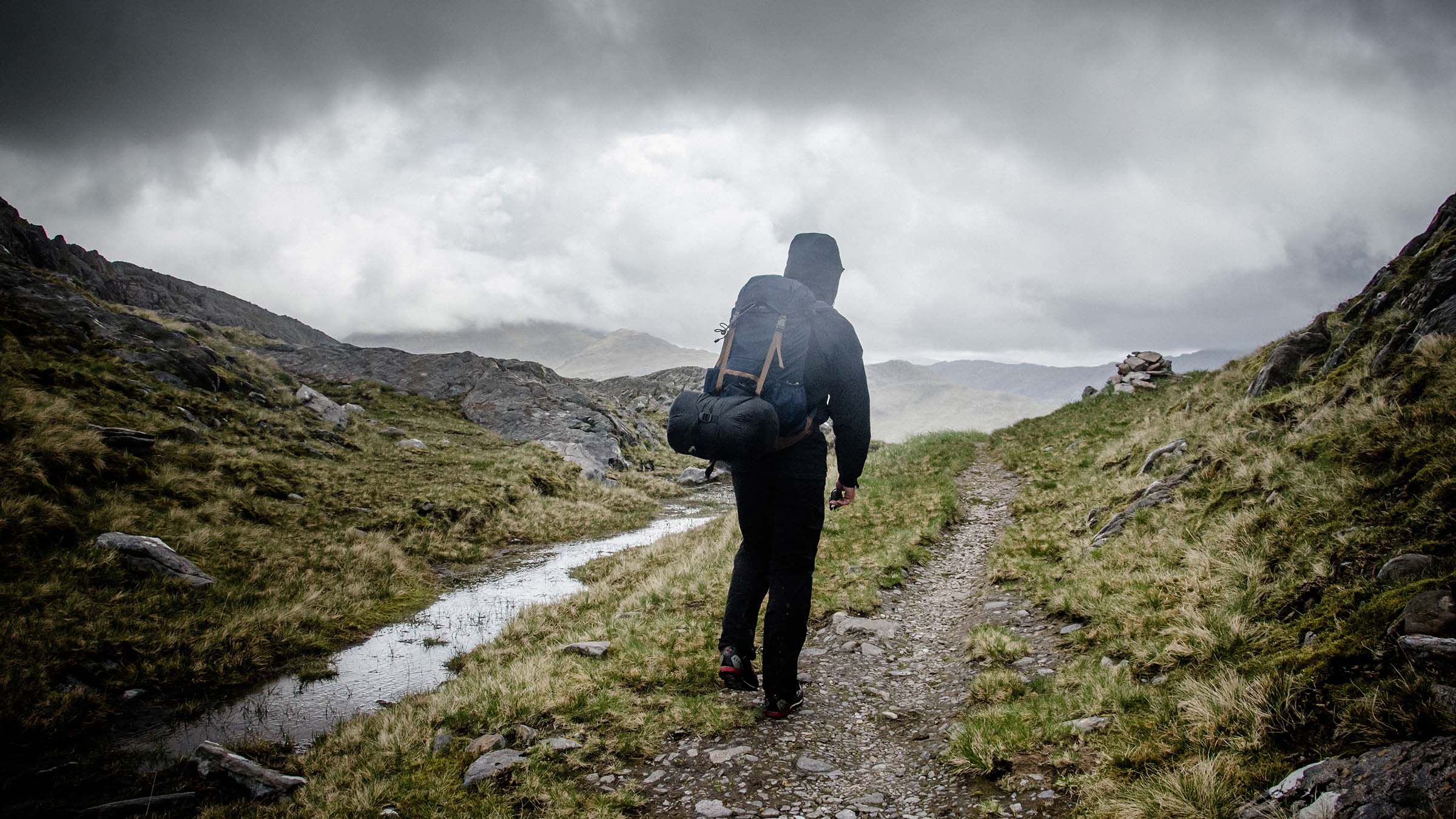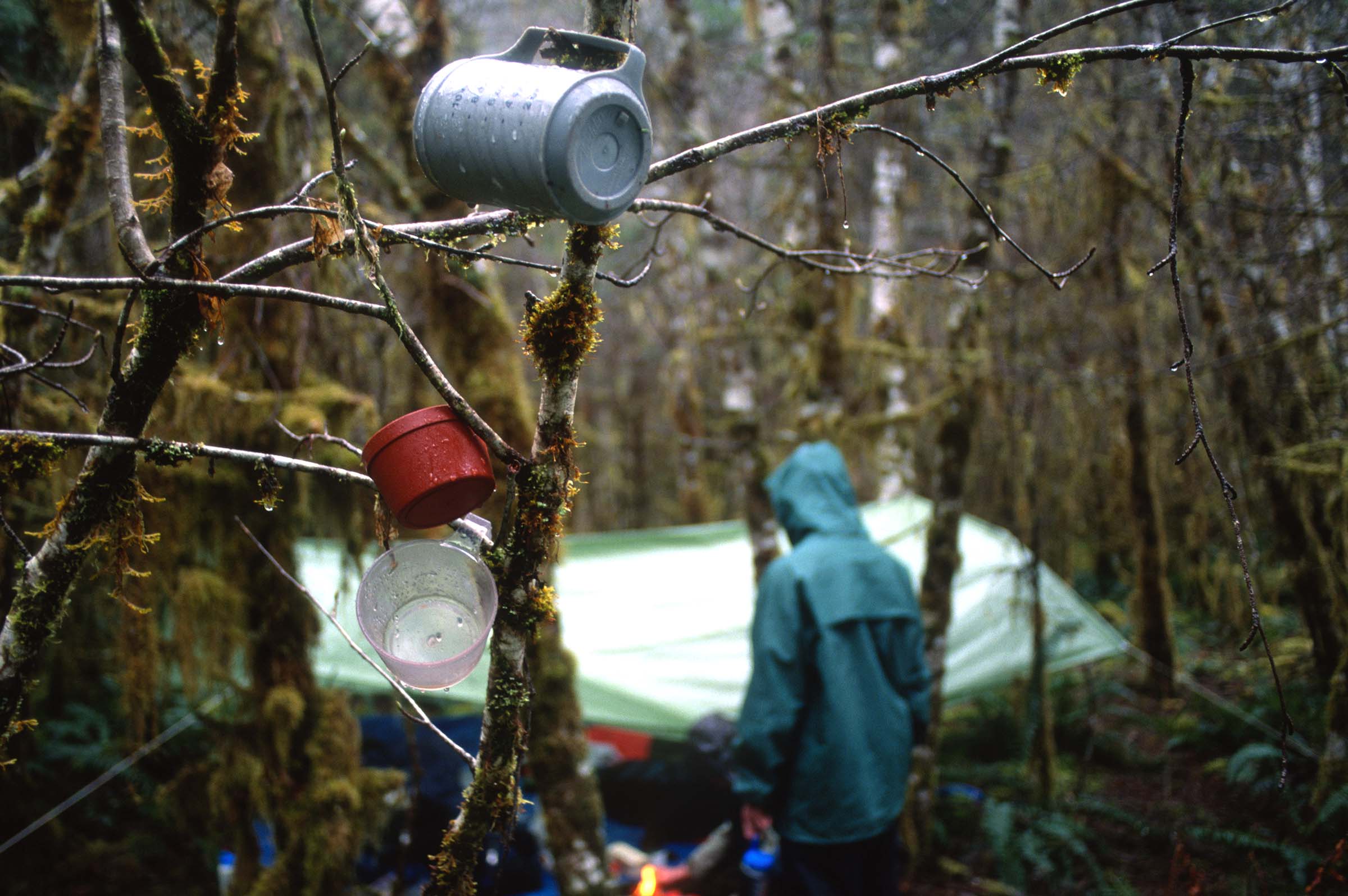Sometimes You’ll Hate Your Hike—and That’s OK

(Photo: Nicolas Holtzmeyer / EyeEm via Getty)
Hiking isn’t just a hobby—it’s a lifestyle. Maggie Slepian tackles the hiking life—and all of the joys, problems, arguments, and weird quirks that go along with it—in her column.
Unless you’ve unlocked some life-altering cheat code, you’re probably not always in a good mood. While this is standard (and expected) for the ups and downs of day-to-day life, I’ve found there’s an unrealistic expectation to be continually joyful when you’re on a hike.
Don’t get me wrong: Sometimes, hiking is pure joy. That’s how the first two weeks of my Appalachian Trail thru-hike were. Despite experiencing some of the worst weather I had encountered on the entire trail, I was consumed by excitement about the adventure I’d just started. I hiked under stormy skies that spat sleet and slush and through leafless, early-March forests. I saw little but bare branches, hiking steeply up and down with few views but plenty of blisters. I was inexperienced and out of shape, but I couldn’t have been happier. I just felt lucky to be out there.
Naturally, that glow wore off. But instead of accepting that, like life, backpacking has ups and downs. I felt pressure to love every mile of the trail and felt guilt when I didn’t. After all, wasn’t this supposed to be the adventure of a lifetime?
When you’re convinced you should be happier than you are, it has a way of making you feel even worse. And the culture of thru-hiking is great at making you feel that you should be happy whenever your boots are on the trail. Part of it is social media’s over-saturated veneer of perfect sunsets and rolling ridgelines, buoyed by a chorus of voices telling us we’re so lucky to be out there—how could we not be having fun when other, deskbound people would kill to have the adventure we’re having?

I knew how lucky I was to be out there, and when I didn’t feel lucky, I felt guilty. But like most things, the more time you spend backpacking, the more you experience a bad day or a bad week. The Appalachian Trail was my first experience with this, and I was surprised to learn that the times I didn’t love my thru-hike weren’t entirely based on external factors. While poor weather, challenging trail conditions, or a weird hiking group certainly impacted my immediate experience, the “down” times were often more personal than environmental.
New York was the hardest section. By the time I arrived in the trail’s ninth state, I was burned out. I had been hiking for months, and despite the fact that I was in good shape and the weather was cooperating, I was really sick of walking.
My partner and I had just gotten dropped off from a resupply hitch on a sunny afternoon somewhere in the middle of the state. I made it 20 yards into the woods before sitting on a rock and starting to cry.
“I don’t want to do this anymore,” I sobbed.
He tossed his trekking poles off to the side and sat down next to me. “Me either,” he said.
We sat in silence for a few more minutes, swatting the occasional gnat and wallowing in the misery of this particular part of the thru-hiking experience. To my surprise, I felt something of a release that came with accepting my feelings. At that particular moment, I didn’t like what I was doing. It didn’t matter that thru-hiking the AT was someone else’s dream, or that I had saved money for years to be able to do it, or that I was privileged for doing so. At that moment, I hated backpacking. I wanted to quit.
Ironically, giving in to my misery pulled me out of it. I didn’t quit, in the end, but pushing aside the social expectations I had internalized and announcing out loud how much I hated being in the woods was all I needed. I wiped my nose, handed my partner his trekking poles, and we continued on.
“Giving yourself permission to have highs and lows helps release the performative pressure to love every second of the trip, and it ultimately makes for a more positive experience.”
When I was honest in my writing about the ebbs and flows of the trail experience, readers told me how lucky I was to be there, and what they’d sacrifice to trade places. I appreciated hearing this, as outside perspectives can be a great reality check. But it also put pressure on me that I don’t think they realized. Everyone gets fed up with their circumstances once in a while, but at my low points, I felt spoiled for not appreciating the supposedly charmed life I was living. In contrast, when I accepted that I didn’t, and would never, love every second of my hike, I was able to relax and move through those tough phases. By the time we were out of New York, I was back to loving the trail (most of the time).
Hike far enough, for long enough, and you’ll experience it too. No matter how glorious your surroundings may be, at a certain point, the repetition will get to you. Maybe you wish you could wake up in a bed and drive downtown for a latte. Maybe you’ll spend 100 grimy miles wishing you could take a hot shower every night. Even if the sun is shining and your tent miraculously didn’t collect condensation overnight, it’s OK to not want to wake up outside for the 15th day in a row. It doesn’t mean you’re not appreciating the experience as a whole.
Giving yourself permission to have highs and lows helps release the performative pressure to love every second of the trip, and it ultimately makes for a more positive experience. Thru-hiking is repetitive. Sometimes the trail is boring, the weather is bad, or your hiking partner is getting on your nerves. None of these are things to be ashamed of, and they’re all part of an extended outdoor experience.
When I think back on the Appalachian Trail, all of my feelings are positive. There’s pride in completing it, and no matter how upset I got, I always found my way back to joy. But even more than that, I appreciate the lesson it taught me: It’s OK to be miserable sometimes, even when everyone else says you should be having the time of your life.